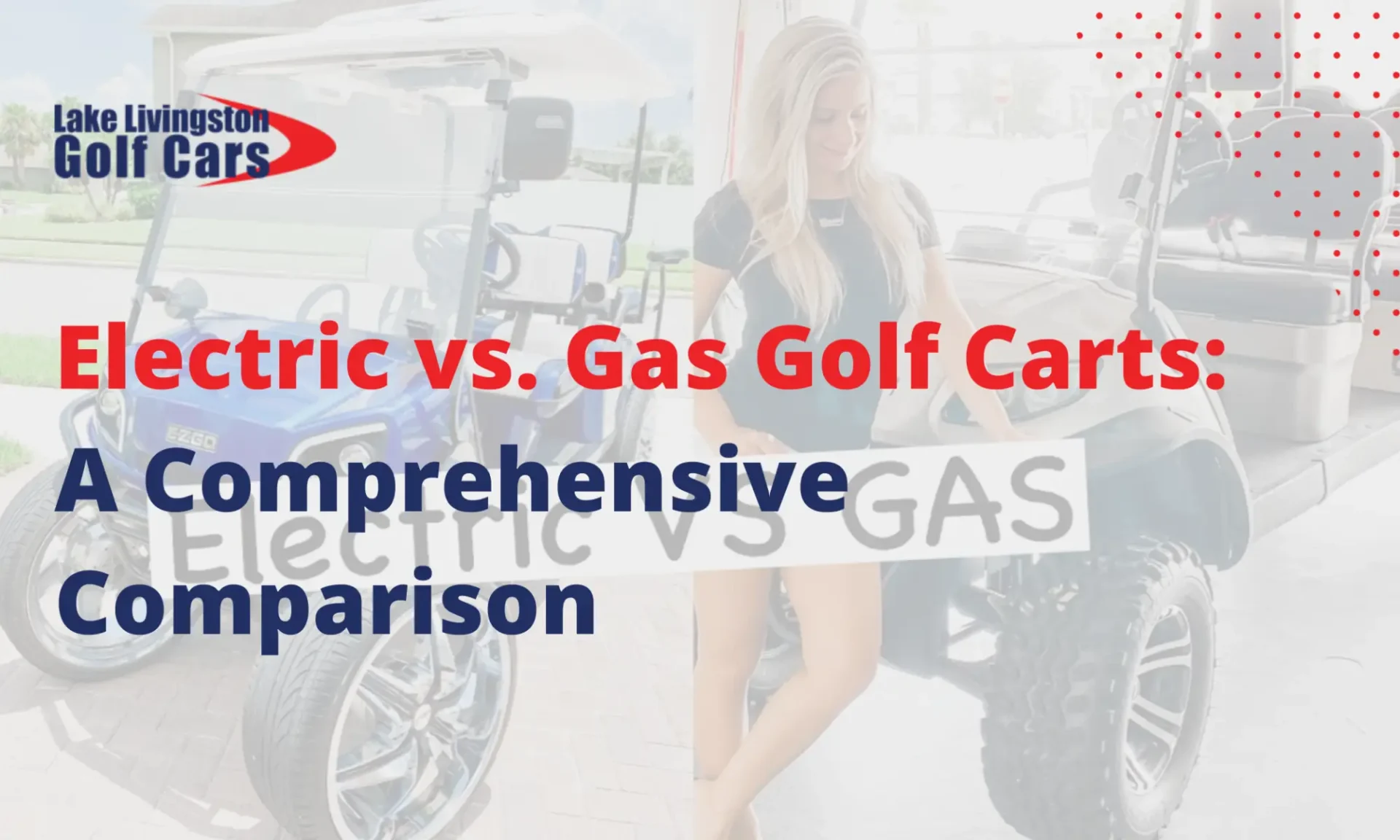When it comes to choosing a golf cart, one of the primary decisions buyers at Lake Livingston Golf Cars face is whether to opt for an electric or gas-powered model. Both types have their unique advantages and drawbacks, and the best choice largely depends on your specific needs and preferences. This comprehensive comparison aims to guide you through the key aspects of electric and gas golf carts, helping you make an informed decision.
Performance and Power
- Electric Golf Carts:
- Electric carts are known for their quiet operation and smooth acceleration.
- They generally offer a more consistent power output, ideal for flat terrains and shorter distances.
- With advancements in battery technology, newer models are closing the gap in power and range.
- Gas Golf Carts:
- Gas-powered carts excel in power and range. They are better suited for hilly terrains and longer distances.
- These carts offer a more car-like driving experience, with a perceptible engine sound and feel.
Maintenance and Upkeep
- Electric Carts:
- Require less regular maintenance as they have fewer moving parts and no need for oil changes.
- Battery maintenance is crucial. Batteries typically need replacement every 5-6 years, which can be a significant expense.
- Gas Carts:
- Require more frequent maintenance, including oil changes, filter replacements, and engine servicing.
- Gas engines can be more resilient over time, especially with diligent maintenance.
Environmental Impact and Efficiency
- Electric Carts:
- Offer a greener alternative with zero emissions during operation.
- They are more energy-efficient and can be charged using renewable energy sources.
- Gas Carts:
- Emit exhaust gases, contributing to pollution.
- However, modern gas golf carts are designed to be more fuel-efficient and environmentally friendly than older models.
Cost Considerations
- Initial Cost and Long-term Expenses:
- Electric golf carts often have a higher initial purchase price compared to gas models.
- Long-term costs for electric carts are generally lower, owing to reduced maintenance needs and the cost of electricity vs. gas.
- Fueling and Charging Costs:
- The cost of charging an electric cart is typically lower than refueling a gas cart, especially with rising fuel prices.
- However, the cost of battery replacement for electric carts can be significant.
Usage and Applications
- Electric Carts:
- Ideal for golf courses, gated communities, and short-distance travel.
- Preferred in settings where noise and air pollution are concerns.
- Gas Carts:
- Better suited for tasks requiring more power and extended range, like farming or large property maintenance.
- A practical choice when access to electricity is limited.
Ride Comfort and Experience
- Electric Carts:
- Tend to offer a quieter, smoother ride, enhancing the comfort level for passengers.
- The silent operation makes them suitable for environments where noise is a concern.
- Gas Carts:
- The engine noise can be a factor for some users, though many enjoy the traditional feel of a gas-powered ride.
- They may offer a more rugged experience, preferred by some for outdoor activities.
Final Thoughts and Considerations
Choosing between an electric and gas golf cart boils down to your specific needs: the terrain you’ll be traversing, the distances you’ll be covering, maintenance preferences, environmental considerations, and budget.
Ready to decide between an electric and gas golf cart? Visit Lake Livingston Golf Cars, where we offer a wide range of both electric and gas golf carts. Explore our collection and find the perfect match for your lifestyle and needs. Our team is here to provide expert advice and help you make the best choice for your golfing and transportation needs.


